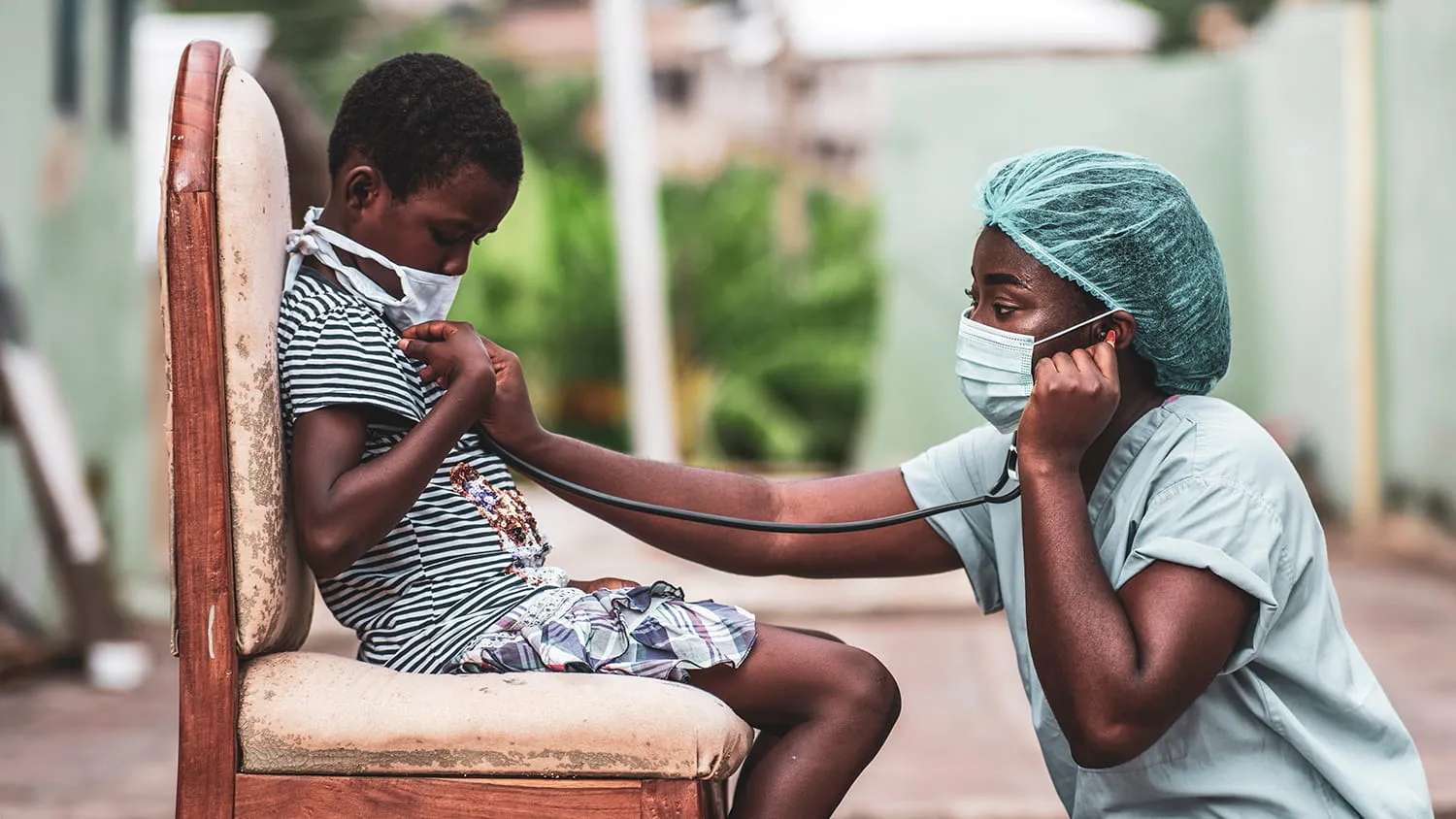Creating a blueprint to fight classroom hunger across Africa
Hungry kids have a hard time learning. Food4Education transforms children’s lives across Africa by providing cost-effective, locally sourced and nutritious school meals, allowing them to grow and thrive.
Relevant Stats
Paragraph introducing any relevant stats.

Project
Description
Problem
Every school day, millions of children across Africa arrive eager to learn but face the devastating reality of classroom hunger. Of the 400 million children on the continent, 90% lack a minimally appropriate diet, and over half don’t eat at recommended frequencies. In Kenya alone, 60% of children don’t receive adequate nutrition, and this malnutrition hinders brain development, affecting both learning and future productivity. Fortunately, there is a proven solution: school feeding programs (SFPs). These programs provide essential nutrition, helping children to grow, learn and thrive. Right now, most SFPs in Africa, however, are expensive, reliant on international aid and don’t meet the specific needs of local communities. Without a focus on local supply chains, these programs are costlier and less sustainable, and they deliver lower-quality and less nutritious meals, limiting their impact on the children they aim to serve.
Big Idea
At the core of Food4Education’s (F4E) approach is a simple but powerful idea: daily school meals can transform children’s lives. By providing locally sourced, nutritious meals, F4E is revolutionizing SFPs in Africa. Their farm-to-table model ensures meals are climate-smart, well-balanced and cover over two-thirds of the recommended daily allowance for essential vitamins and minerals. F4E goes beyond feeding children — it builds sustainable systems by partnering with local farmers, hiring community members and using cutting-edge technology like smart wristbands connected to mobile money for seamless meal delivery. Their co-investment model with parents and governments covers up to 90% of meal costs, making the program affordable and scalable at just $0.30 per meal. With these key metrics, they are laying out a sustainable blueprint for feeding students across the continent.
Plan
By 2030, F4E will feed 1 million children daily in Kenya and expand its program to provide technical advisory to other African governments too, feeding an additional 2 million kids every day. They will achieve this by partnering with countries that already have school feeding budgets, guiding them through a simple, step-by-step process that includes assessing local needs, designing a customized plan and helping implement it. But F4E knows it cannot feed all the children alone. So they also plan to establish a Center of Excellence, building a team to expand training and share their model across Africa and beyond. The center will offer tools and resources for other implementers creating cost-effective, locally-driven meal programs for students, ensuring every child has access to nutritious and affordable meals.
Why will it Succeed?
Over the past decade, F4E has proven its ability to make a real difference in children's lives by providing hot, nutritious meals every day. In just three years, F4E grew from feeding 5,000 children in one county in Kenya to 400,000 children daily across seven counties. With support from local governments and parents, their meals have improved children's nutrition, increasing iron intake by 27% and potassium by 56%. F4E has also helped boost school enrollment and attendance while creating nearly 4,000 jobs, primarily for women. With strong local partnerships, including a network of smallholder farmers — and interest from seven African governments in implementing their proven model — F4E is poised to transform school feeding programs across the continent. A trusted leader in the fight against classroom hunger, their track record shows how powerful nutritious meals can be for children’s health, education and community well-being overall.
Project Impact
Recent Updates


Fortune
Humanitarian aid for Africa is drying up. It’s hard but I see an opportunity to build something better
Humanitarian aid for Africa is drying up. It’s hard but I see an opportunity to build something better
Opinion piece by Wawira Njiru, the founder and CEO of Food4Education, a social enterprise scaling sustainable school feeding programs in Africa.








.jpg)








.jpg)

